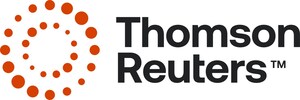Thomson Reuters Study Confirms Economic Viability of Orphan Drugs Positioned for Unmet Medical Needs
- Orphan drugs achieve blockbuster status in 2011 and generate over $50 billion in revenue
PHILADELPHIA, Aug. 22, 2012 /PRNewswire/ -- The Intellectual Property & Science business of Thomson Reuters, the world's leading provider of intelligent information for businesses and professionals, today released the results of its study on orphan drugs, developed to treat rare diseases, finding that they have the potential to generate as much lifetime revenue as drugs used for more common health conditions. The findings are featured in the Thomson Reuters paper, "The Economic Power of Orphan Drugs," and in Drug Discovery Today. Rare diseases affect from a handful to up to 200,000 patients and include illnesses such as Cystic fibrosis, Wilson's disease, and Homozygous familial hypercholesterolemia.
(Photo: http://photos.prnewswire.com/prnh/20120822/NY61059-INFO)
Life Sciences researchers at Thomson Reuters found that developmental drivers such as government incentives, shorter clinical trials and high rates of regulatory success make top orphan drugs as economically viable as non-orphan ones, even though the number of patients benefitting from them is significantly smaller than those benefitting from non-orphan medicine.
"This new data gives economic validity to the importance of targeting rare diseases in the global pharmaceutical market," said Kiran Meekings, Ph.D., Life Sciences consultant at Thomson Reuters and co-author of the report. "Not only does such focus help those affected by rare diseases, of which there are 25 million people in the United States alone, it also furthers the aim of precision medicine and substantiates the envisioned high returns on the R&D investment, particularly for drugs with multiple orphan disease approvals."
Current estimates indicate that 250 new rare diseases are identified annually. This report provides extensive and tangible evidence that orphan drug development is an important component of biopharmaceutical R&D strategy and that a number of orphan drug therapies are already achieving blockbuster status.
"The higher value of companies that have a strong orphan-drug strategy reflects the increasing degree of optimism for the sale-and-profit potential of the rare disease market," said Brian Lester, senior analyst and managing director of the life sciences group at the financial services firm Manning & Napier. "We expect the orphan disease business model to sustain a competitive edge over the traditional primary care business model in the future."
The data was aggregated by Thomson Reuters Life Sciences consultants who performed an economic analysis of orphan versus non-orphan drugs while collaborating closely with Cory Williams, MD, Ph.D., Pfizer, in reporting their findings.
Thomson Reuters compared the total value of orphan drugs from 1990 to 2030, using its vast information solutions including Thomson Reuters Cortellis™, Integrity and Newport Premium™, while industry benchmarking data was provided by CMR International, a Thomson Reuters business and industry leader in global R&D pharmaceutical measurement. This comprehensive information spans multiple disciplines and supports the drug research and development lifecycle.
Read the full Thomson Reuters report: "The Economic Power of Orphan Drugs." View "Orphan Drug Development: An Economically Viable Strategy for BioPharma R&D," the peer-reviewed article featured in Drug Discovery Today. Access the infographic on the economic viability of orphan drugs. To learn more about Thomson Reuters Life Sciences Professional Services, Integrity, Forecast, CMR International and Newport Premium visit: http://ip-science.thomsonreuters.com/.
ABOUT THOMSON REUTERS
Thomson Reuters is the world's leading source of intelligent information for businesses and professionals. We combine industry expertise with innovative technology to deliver critical information to leading decision makers in the financial and risk, legal, tax and accounting, intellectual property and science and media markets, powered by the world's most trusted news organization. With headquarters in New York and major operations in London and Eagan, Minnesota, Thomson Reuters employs approximately 60,000 people and operates in over 100 countries. For more information, go to www.thomsonreuters.com.



Share this article